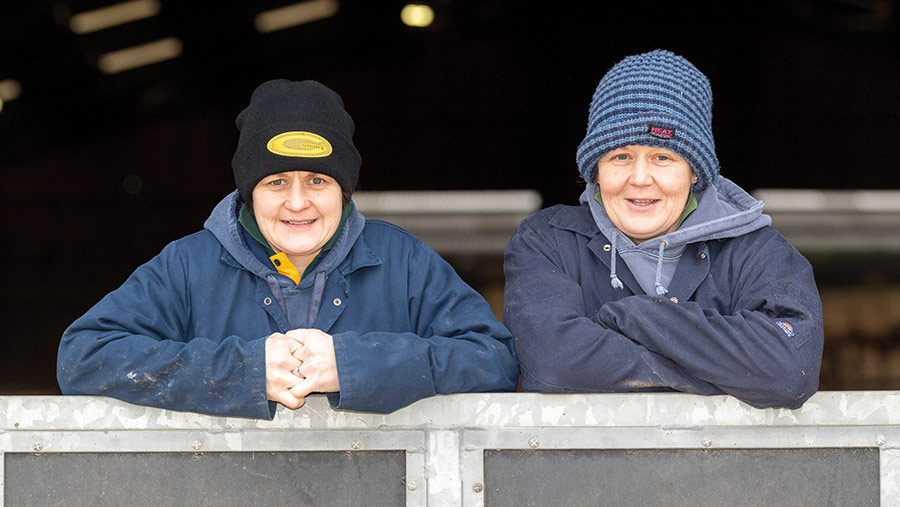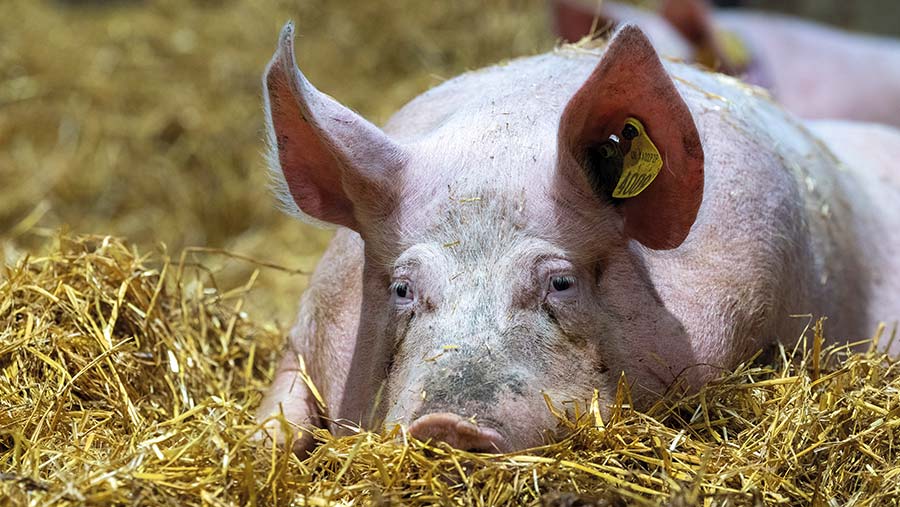Pig producers aim for more control of prices and supply chain
 Kate and Vicky Morgan © Wayne Hutchinson
Kate and Vicky Morgan © Wayne Hutchinson Making long-term plans is tough, especially when trying to deal with short-term problems of the magnitude now being faced by pig producers.
“The past eight months or so have been the most emotionally and financially stressful we’ve ever had,” says Vicky, whose family business, based near Driffield, East Yorkshire, has 1,700 breeding sows on a high-welfare indoors system.
A lack of butchers in the processing sector due to the Covid pandemic and Brexit-related labour shortages, together with the hike in feed costs and glut of pigmeat on the market, has seen returns slashed.
See also: What is lean management and how can it improve pig farming?
“The pig industry is notorious for having good times and bad times, based on supply and demand – but this is unprecedented,” says Vicky.
The situation has made her – along with sisters Kate and Rachel and parents, Sue and David – reflect on the future.
Farm facts: DP Morgan, Pockthorpe, East Yorkshire
- Enterprises: 1,700 breeding sows, weaning 1,000 pigs a week; own finishing buildings, plus pig B&B arrangements with about 30 other farmers in the area; 140ha rented out
- Staffing: Employ 15 people across breeding and finishing enterprises and feed mill
- Annual rainfall: 162mm
- Soil: Chalky wold
Structural change
Given the pig sector has never been subsidised, their transition challenge isn’t about dealing with the fall in support, but about trying to wrestle back more control of their own fate – partly by instigating structural change in the food chain through lobbying.
“Agriculture has always been bottom of the pile with farmers the price-takers not price-makers. I’m sick of this. The way the supply chain works has to fundamentally change.”
Vicky says pig farmers are losing money, but the processors and retailers are still receiving their margins, partly by cutting back the stock numbers they take, in some instances contrary to contractual agreements.
“The government has to step in and redress these supply chain imbalances, otherwise there won’t be any independent pig producers left.”
As a prominent “face” of the sector – actively campaigning and appearing in the media – Vicky has always been involved with the National Pig Association. “They do an amazing job,” she says.
In a world of volatility and uncertainty, the Morgans are keen to have more influence over their own destiny.
Transition goals
- Facilitate structural change in supply chain
-
Establish more control over own destiny
- Diversify
More control
“The more of our business we control, the less precarious the position we could be put in. Take feed: At present, feed bills account for about 70% of our costs and we grow less than 10% of it.
“We have our own feed mill and we take the grain and the straw from the 350 acres of land we own and rent out, but we’re still largely at the mercy of the feed market.”
Recent events, meanwhile, have made her question the current worth of contracts. “Farmers base their business decisions on having the security of a contract, but if both sides aren’t prepared to stick to it, it’s worthless.
“The problems in the supply chain have not been of the farmers’ making, yet we’ve been the ones expected to take the hit. And George Eustice’s comment about this being part and parcel of our commercial risk showed a complete lack of understanding of the situation on his part.
“We have to make sure there is reform in a way that means we never have to go through this again.”

© Wayne Hutchinson
Spreading risk
The immediate aim has been to get through the current crisis, then hopefully the situation – and prices – might improve in the spring. “There could well be a shortage of pigs, because a lot of people have gone out of production in Europe and the UK.
“There is also potential that producers could receive money under the new post-Brexit domestic agricultural policy for doing good work in terms of enhancing welfare, for example.
“Recent months have made us re-evaluate what we’re doing and why. We’re looking into diversification – in particular, providing holiday accommodation. It will spread our risk, but anything tourism-related is a lot of work and there are only so many hours in the day.
“I still get up and want to work with pigs, because it’s a job I love. But things have to change. We’re having lots of discussions about the future – but we’re certainly not about to give up.”
DP Morgan is one of our Transition Farmers. Join them as they strive to become financially and environmentally sustainable and how they intend to overcome the challenges they face over the next five years.
